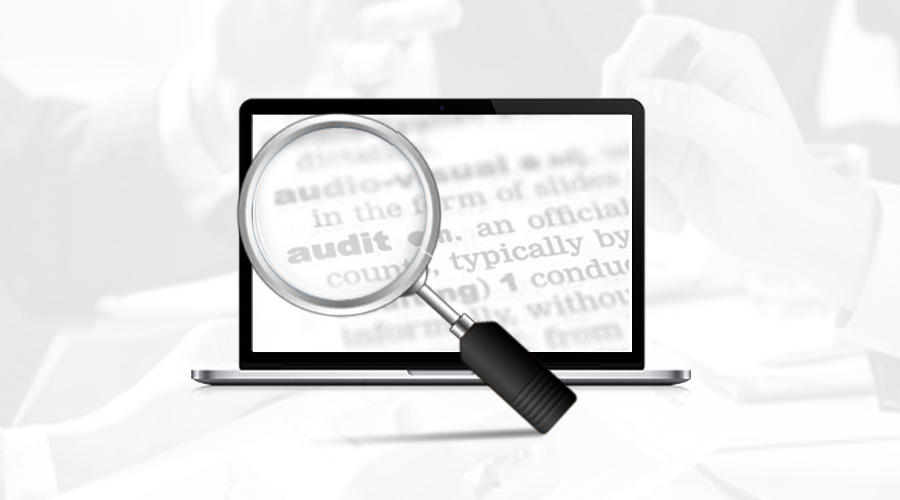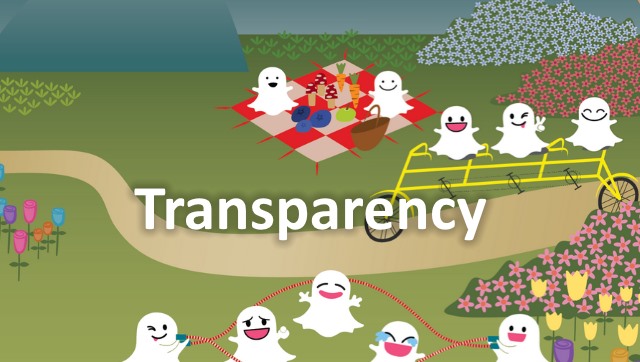
2014: The year data breaches came of age
There were 783 reported data breaches in 2014, up 27.5 percent over the previous year and the most in any year of the past decade. The average cost of each of those breaches was $3.5 million, up 15 percent over 2013.
These are among the statistics highlighted in a new infographic from user behavior intelligence specialist Exabeam. Ten breaches each led to more than a million records being reported stolen, the biggest being Home Depot with 56 million records.

Online leaks like Game of Thrones have become the norm
Last month, it was Kanye West and now it’s HBO’s award-winning medieval drama Game of Thrones that must suffer the dreaded online leak. However, these are just two examples from countless others -- it seems as though in the digital world online leaks have become the norm.
The Internet, which has vastly improved global communication by enabling ideas to be shared and projects to be collaborated on, has also led to information being leaked with increasing regularity.

The majority of Brits are worried about online security
For every ten British adults, seven are seriously concerned about the privacy of their online data and fear it might get stolen by hackers, a new study has revealed.
The study, conducted by international internet-based market research firm YouGov, surveyed more than 2,000 British adults and found that 72 percent are concerned about their private online information, while 32 percent are willing to pay someone to keep their data safe.

Snapchat transparency report shows legal requests hit a devilish 666 accounts
Largely due to the exposés in the media following Edward Snowden's NSA revelations, there is now great interest in security and privacy. From this sprang a new breed of report -- transparency reports detailing the number of data requests legal and governmental agencies made about a particular service.
Google, Facebook, Yahoo, Microsoft and Apple are among the companies who have released transparency reports, and the latest name on the list is Snapchat. As with other similar reports there is a limit to what they are able to reveal, but it does show that various agencies had an interest in no fewer than 666 Snapchat accounts.

Microsoft will no longer enable Do Not Track by default
Do Not Track will not be enabled by default in future versions of Microsoft web browsers, the company says. The decision comes in response to the latest draft of the World Wide Web Consortium's DNT standard which states "in the absence of user choice, there is no tracking preference expressed".
Microsoft is concerned that if the setting is enabled by default in Internet Explorer or Project Spartan, sites would have a loophole permitting them to ignore a DNT signal. In the future users will need to manually enable the feature, and Microsoft says that clear information will be provided about how to do this.

Point of sale systems at risk from underlying vulnerabilities
Last week we reported on the PoSeidon malware threatening credit card security by stealing transaction details.
Charles Henderson vice president of managed security testing at information security specialist Trustwave believes that there's a bigger underlying problem with the way retailers implement PoS systems putting them at risk.

Snowden's leaks served only to strengthen the NSA's resolve
Edward Snowden is heralded as both a hero and villain. A privacy vigilante and a traitor. It just depends who you ask. The revelations he made about the NSA's surveillance programs have completely changed the face of online security, and changed the way everyone looks at the internet and privacy.
But just before the whistle was blown, it seems that the NSA was considering bringing its telephone data collection program to an end. Intelligence officials were, behind the scenes, questioning whether the benefits of gathering counter-terrorism information justified the colossal costs involved. Then Snowden went public and essentially forced the agency's hand.

The FBI wants your computer and mobile to be insecure
You'd think that governments would be encouraging people to keep their computers and personal data safe. Until relatively recently, this has been exactly what the FBI has been pushing -- suggesting that phone users should enable encryption on their handsets. But it seems that there has been something of a change of heart. It's probably Snowden's fault.
Now, as part of an "ongoing website redesign", advice about using encryption and protective PINs has vanished from the FBI website. Forget the security-focused devices such as the Blackphone 2, it appears that the bureau wants your data, and you, to be insecure.

Google has a new data compression extension for Chrome -- do you trust it?
A couple of days ago Google launched a Chrome extension that compresses web pages. This is a feature that has been available for the iOS and Android versions of Chrome, but now it has hit the desktop. It's something that will be off interest to people whose ISP puts data caps in place.
Launched on March 23, the Data Saver extension is currently in beta (come on, this is Google… what did you expect?) and it helps to "reduce the amount of data Chrome uses". This might sound appealing, but it does mean that your traffic is routed through Google's own servers. Do you trust Google enough?

Is your computer bugging you? [Q&A]
Data leaks due to security flaws and hacker activity constantly make the news, but they're not the only ones that businesses have to worry about. Leaks can stem from employee or industrial espionage activity too and of course there's always government snooping.
Whilst larger businesses with sensitive data or intellectual property to protect often check for old-style surveillance they may not be as aware of the potential for PCs and other gadgets to gather intelligence as well as leak data. We spoke to Andre Ross, Director of Australian digital forensics and information security company Elvidence to find out how businesses may be at risk and what they can do to combat it.

Microsoft signs letter to congress calling for changes to government surveillance
Microsoft has teamed up with the likes of Mozilla, Silent Circle, Human Rights Watch, the Electronic Frontier Foundation and others, signing a letter to the White House and Congressional leaders that calls for an end to bulk collection of data. Many people and organizations have called for reform to the USA Patriot Act and this letter is the latest attempt to pile pressure on the government to make changes.
Scores of signatories point out that the USA PATRIOT Act Section 215 is due to expire in June, and now is the time to instigate reform. A call is made for greater privacy protection to be put in place when data is collected, as well as for improvements in transparency.

Smartphone owners aren't as privacy minded as they think they are
A Pew Research study published last week on Americans' awareness of government surveillance programs revealed just 15 percent of American adults have changed their mobile phone habits in the wake of Edward Snowden's revelations.
Security firm Lookout has just released the findings of its study on mobile device use, and that echoes Pew Research’s findings, showing that while many mobile phone users claim to be highly aware of privacy issues, few actually do enough to safeguard their data, and many are willing to trade privacy for convenience. There’s bad news for businesses too, as a huge percentage of smartphone owners admit to not caring too much about protecting work data on their devices.

India's Supreme Court protects freedom of speech -- strikes down 'unconstitutional' IT Act Section 66A
It’s a big day for freedom of speech in India. The country’s Supreme Court today scrapped an ambiguous and controversial law which governed the consequences of posting sensitive and offensive content on the web. The ruling challenges the IT Act, including Section 66A, Section 79, and Section 69. With this decision the Supreme Court -- the highest judicial forum and final court of appeal under the Constitution of India -- ruled against the Central government which had defended the section.
The bench which consisted of Justice Chelameswar and Justice Rohinton Fali Nariman struck down Section 66A of the IT Act. For a refresh, the Section 66A orders 3 years imprisonment for anyone making offensive statements on the web; Section 79 forces the intermediary to take down the content from the web; and Section 69 allows blocking of online content.

How to keep your smartwatch data safe
One of the technological highlights of 2015 so far has been the official announcement of the much anticipated Apple Watch, almost two years after Samsung’s first Galaxy Gear smartwatch. The iPhone compatible smartwatch is initially priced from $349 for the entry-level Sport model to around $17,000 for an 18-carat gold version. Some of the manufacturers, like Samsung, LG, SONY and Motorola, are already presenting the 3rd generation of their smartwatches.
While opinion is divided about how successful Apple Watch will prove to be, it’s clear that smartwatches and other wearable technologies are a great way to collect and display contextual data quickly and easily. However, because this is a technology boom that is still in its infancy, there are several questions that remain to be answered when it comes to data security and recovery. There are four things you might like to consider when protecting data accessed via a smartwatch.

Anti-censorship site Greatfire.org suffers massive DDoS attack
GreatFire.org, the website with the aim of delivering uncensored news to China, has been hit by a massive DDoS attack. The attack started on March 17 but the anti-censorship site has only just gone public about it and made a call for help.
The organization believes that the attack -- which it calls "censorship by brute force" -- could be a response to an article in the Wall Street Journal. With a peak of 2.6 billion page requests per hour, servers were simply unable to cope with the traffic, knocking GreatFire.org's mirror sites offline.